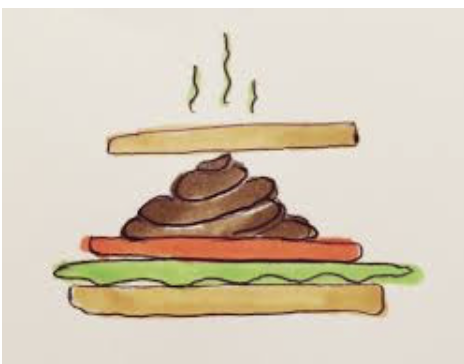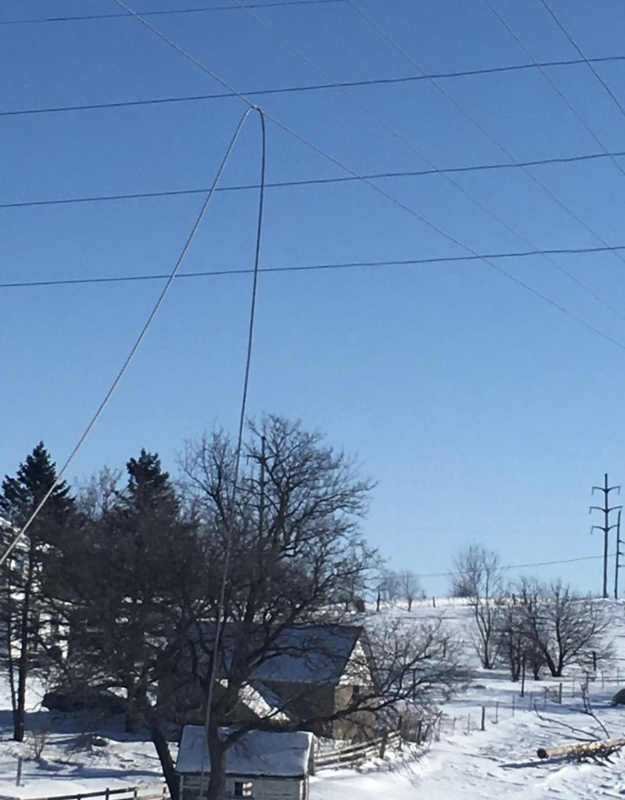Let's turn to what's going on in Maine right now. Central Maine Power wants to build a new transmission line across western Maine for the purpose of connecting Canadian hydro power to Massachusetts, where the legislature has created an expensive "green" mandate. Because Massachusetts law requires utilities to create or purchase certain amounts of "clean" power, it's nothing but a feeding frenzy of for-profit companies trying to fill that need at an enormous profit. Essentially, Massachusetts will pay whatever it costs to meet its stupid law. Enter CMP, masquerading as a public utility for Maine consumers, but actually owned by Spanish utility giant Iberdrola as a tidy, profitable, regulated monopoly.
The transmission line proposed, the New England Clean Energy Connect (NECEC), has been hotly opposed by the people and communities in western Maine who could be forced to live with the project's detriments forever. However, there's always a shark or two in the pool, and some formed their own little group last year and extorted a sum of money from CMP in order to pipe down and go away. In exchange for cash, these greedy gum flappers agreed to allow the transmission line to wreck their community, economy, and environment. The cash offer did not truly change the transmission proposal, it only changed the character of the opposition in order to neutralize it. It was nothing more than hush money, or perhaps a flat out bribe. Worse yet, not everyone affected by the project walked away with money in their pockets. Only a select few who took it upon themselves to sell the interests of the many walked away with a profit. The vast majority of the people affected by the transmission project got zip, squat, nada, zero. They got sold downriver by people who pretended they represented the many, and leveraged that into a quick and personal pay day.
Except CMP must have bought out the wrong opponents... or maybe not enough opponents, because they're still on the hot seat and must believe that approval of their transmission proposal in Maine is in jeopardy. CMP wouldn't come to the table with cash in hand if it thought there was a good chance of approval without it.
And that's just what the media is reporting... CMP and some of its opponents are back at the bargaining table. What's for sale? Maine. Even though these opponents don't own Maine, they're selling it.
So, who's bellied up to the bar?
Rep. Scott Landry, who said,
“I’m excited to see what’s there,” said Rep. Scott Landry, D-Farmington. “I want to see what we can get for our community, though who knows if it’s going through or not with all the opposition out there.”
The Boston-based Conservation Law Foundation, whose spokesman said,
“Clean Energy Connect has the potential to significantly reduce New England’s climate-damaging emissions,” Sean Mahoney, the executive vice president and director of CLF Maine, said. “But any approval of the project must depend on CMP providing greater economic benefits for Maine families and businesses, better safeguards for our environment, and a clear path to boost local clean energy here at home.”
And then there's Tom Saviello, a selectman in Wilton, who wants to make sure Mainers have jobs. This transmission line isn't a source of long-term jobs for anyone, it's just a source of cash for its masters in Spain. And since when is anyone's right to a job more important than another's right to property, recreation, or a preserved environment? Jobs are great, but they shouldn't come with major sacrifice on the part of thousands of others.
The Maine Office of the Public Advocate, who is supposed to represent electric ratepayers. All of them. The advocate declined to comment, but this was reported:
Public Advocate Barry Hobbins declined to comment Tuesday, but has publicly stated in the past that CMP should contribute $50 million to help low-income Mainers with electric bills, just like they're doing in Massachusetts.
Oh, hey, would you look at that? Not 24 hours after confidential settlement talks begin, leaks erupt. Maybe someone should toss out this settlement -- it's been compromised. This article provides details of what CMP is offering. Not just $50M for low-income ratepayers any longer, now it's also $140M for all ratepayers, over 40 years.
So, let's consider the reality of this... $140M divided by CMP's 600,000 ratepayers is $233.33 each. But let's further divide that over 40 years, and we get $5.83 per customer per year. And further divided between 12 monthly bills per year, we come up with a whopping 48.5 cents per month off your electric bill. Is that kind of savings really going to make a difference in their lives? There is no gigantic windfall for Mainers here, it's just a figurative "feather in his cap" for Ratepayer Robin Hood, who can pat himself on the back and sing his own praises in the media and the statehouse while the people he supposedly advocates for don't notice a bit of difference in their financial situation. However, if they take a drive, perhaps they'll notice the transmission scar across western Maine. It's going to be pretty hard to ignore.
And since we're dealing in reality here, CMP's rates will rise much more than $140M over the next 40 years. In fact, they'll probably reach that pinnacle within 10 years, and then climb much higher. Savings in later years will be completely obliterated.
Is it really such a good idea to sell part of the last surviving American wilderness for less than the price of a cup o' joe?
In a statement Saturday, Sandra Howard, a spokeswoman for the opposition group Say NO to NECEC, said there is “no amount of short-term money” that could make up for the impacts to Maine’s natural environment and tourism.
“Parties that wish to settle for their own profit interests should dig deep into their conscience before selling out Maine to benefit corporate profit interests,” she said.
It remains to be seen if CMP will offer enough to the greedy to get a few more parties onboard the Profit Express. It won't be enough to buy all the opposition, and the most CMP could do is file a contested settlement and hope the PUC will take the coward's way out by approving a skewed settlement in order to escape responsibility for a horrendous decision.
Utility regulatory settlements are nothing more than government sanctioned bribery.



 RSS Feed
RSS Feed